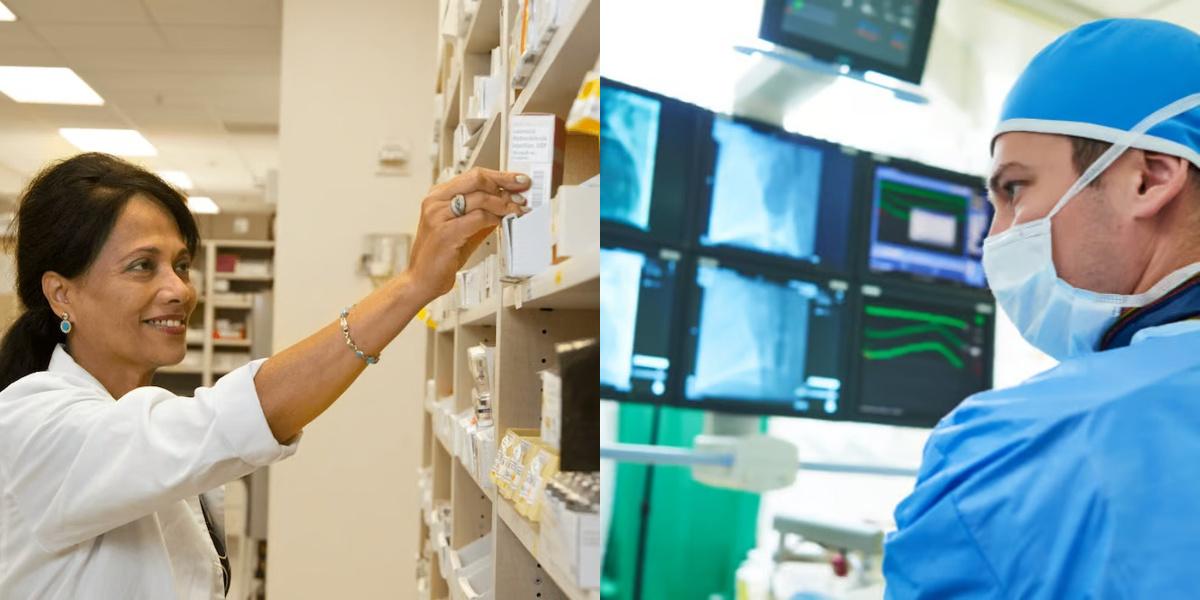Pharmacy Technician vs Radiology Technician

Are you considering a career in the healthcare industry but can't decide between becoming a pharmacy technician or a radiology technician? Both of these professions offer rewarding opportunities to work in a medical setting and contribute to patient care. In this blog post, we will explore the roles and responsibilities of pharmacy technicians and radiology technicians, as well as the differences between these two professions. We will also discuss the education and training required for each role, the career outlook, and salary potential. By the end of this article, you should have a clearer understanding of which path may be the best fit for you.
Pharmacy Technician:
- High school diploma or equivalent
- Completion of a pharmacy technician training program (varying in length from a few months to a year)
- Some states may require certification or licensure
- Continuing education to stay up-to-date with changes in medication and pharmacy regulations
Radiology Technician:
- Associate's degree in radiologic technology or a related field
- Certification from the American Registry of Radiologic Technologists (ARRT) is commonly required
- Some states may have additional licensure requirements
- Continuing education to maintain certification and stay current with advancements in imaging technology
Pharmacy Technician vs Radiology Technician: Career Outlook and Salary
Pharmacy Technician:
- According to the Bureau of Labor Statistics (BLS), the employment of pharmacy technicians is projected to grow 4 percent from 2019 to 2029, about as fast as the average for all occupations.
- The median annual wage for pharmacy technicians was $34,020 in May 2020, with the highest 10 percent earning more than $49,130.
Radiology Technician:
- The BLS projects a 7 percent employment growth for radiologic technologists and technicians from 2019 to 2029, faster than the average for all occupations.
- The median annual wage for radiologic technologists was $63,710 in May 2020, with the highest 10 percent earning more than $101,580.
Final Thoughts
Both pharmacy technicians and radiology technicians play crucial roles in the healthcare industry and contribute to patient care. When choosing between these two professions, consider your interests, skills, and long-term career goals. If you enjoy working with medications, interacting with patients, and providing customer service, a career as a pharmacy technician may be a good fit for you. On the other hand, if you have a strong interest in medical imaging, enjoy working with advanced technology, and prefer a more behind-the-scenes role, becoming a radiology technician may be the right path. Ultimately, the decision is yours to make based on what aligns best with your interests and aspirations.
Ensuring accessibility for individuals seeking growth, Dreambound strategically places its educational programs in various locations. Delve into a more comprehensive understanding of the exciting opportunities within these two vocations by visiting:

Pia Yapjoco is part of the school growth and sales team at Dreambound. She helps facilitate school partnerships that expand educational opportunities for aspiring students in allied health and other trades. Beyond work, she curates her pup's Instagram, hunts for hidden coffee gems, and escapes into cozy gaming.





